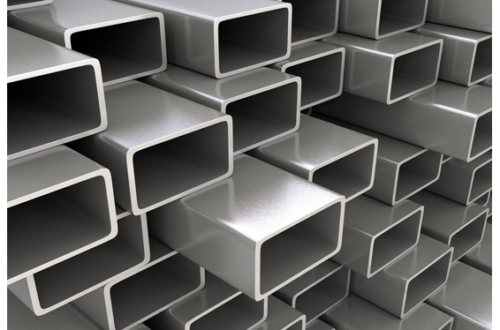Long praised for its rich flavor and many health advantages, olive oil is a mainstay of the Mediterranean diet. On the other hand, there is disagreement over the health effects of frying food in olive oil. This article explores the nutritional qualities of olive oil, including how stable it is over heat, the advantages and disadvantages of using it for frying, and suggestions for healthier cooking techniques.
Olive Oil’s Nutritional Profile
Extra virgin olive oil (EVOO) contains a high concentration of monounsaturated fats, primarily oleic acid, which is associated with heart health benefits. Antioxidants found in it, including polyphenols and vitamin E, can help the body fight oxidative stress. Studies have indicated that regular use of olive oil may lower the incidence of chronic diseases such as heart disease, stroke, and some kinds of cancer, due to the high quantity of these beneficial chemicals.
Olive oil has more health advantages when taken raw than when it is cooked, such as when it is poured over cooked food or used in salad dressings. However, it’s unclear if these advantages are maintained when food is cooked when it’s fried in olive oil.
The Science of Olive Oil Frying
The temperature is very important during frying. The smoke point of extra virgin olive oil bad for health is approximately 375–410°F/190-210°C), which is a comparatively low temperature. The temperature at which oil starts to degrade and release smoke and possibly toxic substances is known as the “smoke point.” Olive oil can lose part of its nutritious content and generate dangerous compounds called free radicals and acrolein when it reaches its smoke point.
Studies, however, indicate that the effects of frying with olive oil on health may differ according on the kind of food being fried and the cooking technique used. For example, cooking meals at a lower temperature can reduce the amount of toxic substances that occur. Furthermore, olive oil’s high antioxidant content might shield it from oxidative damage during cooking.
Olive Oil Frying’s Health Benefits
Frying in olive oil has health advantages despite some risks:
1. Heart Conditions:
Olive oil’s monounsaturated fats can help lower bad cholesterol (LDL) and raise good cholesterol (HDL) to assist lower cholesterol levels. Maintaining this equilibrium is essential for heart health.
2. Properties of Antioxidants:
Olive oil contains antioxidants that may improve general health by lowering inflammation and shielding cells from harm.
3. Enhancement of Flavor:
Foods fried in olive oil have a more flavorful and appetizing appearance. This may motivate people to eat more fruits, vegetables, and other healthful foods.
4. Stability:
When heated, olive oil maintains its healthy qualities more so than other types of oil. Studies have indicated that it has a lower propensity to generate toxic chemicals during cooking, particularly when fried at moderate temperatures.
Possible Consequences of Using Olive Oil for Frying
Although there are benefits, there may also be disadvantages to take into account:
Caloric Density: Because frying absorbs oil during cooking, it raises the calorie amount of meals. If left unchecked, this might result in overindulging and weight gain.
Creation of Dangerous Substances Reusing or overheating olive oil might result in the production of toxic chemicals. Consuming oxidized lipids has been related in studies to a number of health problems, such as cardiovascular disease and inflammation.
Nutrient Loss Cooking foods such as vegetables, which may lose certain vitamins and minerals, can cause nutrient loss when frying.
Food Choices Frying can offset the health benefits of using olive oil by promoting the consumption of less healthful foods like packaged snacks and fried meats.
The Best Methods for Using Olive Oil for Frying
Here are some best practices to optimize the health advantages of olive oil while reducing any potential negatives if you decide to fry with it:
Make Use of Premium Olive Oil When frying, always use extra virgin olive oil since it has the highest concentration of beneficial fats and antioxidants.
Track the temperature Maintain the frying temperature below the oil’s smoke point. Maintaining the right temperature for frying can be facilitated by using a thermometer.
Limit Reuse Reusing olive oil for frying more than once can lead to the formation of potentially dangerous chemicals.
Deep-Fry Fresh Foods If you want to preserve nutritional content, fry entire, fresh ingredients instead of processed ones.
mix Cooking Methods To cut calories without sacrificing flavor, try mixing cooking techniques like sautéing or baking with frying.
Practice Portion Control Even when eating fried meals that have been cooked in olive oil, pay attention to the serving quantities.
Better Substitutes for Fried Food
Several healthy cooking options are available for people who want to enjoy the flavor of olive oil without the possible drawbacks of frying:
Sautéing This cooking technique preserves nutrients while cooking quickly and uses less oil than frying.
Roasting Vegetables can maintain their nutrients and taste better when roasted in the oven with a drizzle of olive oil, all without the added calories of frying.
Grilling Flavor can be added to food without frying by grilling it with a brush of olive oil.
Steaming: This technique allows you to add flavor later with a drizzle of olive oil, while retaining the nutrients in the vegetables.
In summary
When done properly, frying meals in olive oil can be a healthful option. Take advantage of the benefits of this nutrient-rich oil while being aware of any potential drawbacks. You may enjoy the full flavor and health advantages of olive oil without sacrificing your wellbeing if you know the science underlying cooking temperatures, choose premium oils, and use them in moderation. As with any cooking technique, moderation and balance are essential. Overall health and lifespan can be enhanced by adopting a varied diet that consists primarily of fresh, whole foods combined with meals that are cooked responsibly.





